Greetings! This is Today in Slovakia – Tuesday, 29 July edition.
After a two-week break from the podium – his last press conference was all about gas – Prime Minister Robert Fico was back in front of the cameras on Tuesday. This time, he latched onto a story from a British news site, twisting it just enough to fire up his voters. After all, who is going to bother reading the original English text?
THE CLAIM: According to Fico, the United Kingdom meddled in Slovakia’s 2023 election – the one his Smer party still won.
WHAT IS REALLY GOING ON: Our colleague Jakub Filo ponders in his column why Fico chose this particular topic, and why now. But it was not just the Brits who got dragged into his narrative. The prime minister also took aim at the Constitutional Court, diplomats from France, Luxembourg and the Netherlands, and the media – accusing them of staying silent when they should not. And yes, he could not resist another jab at one of the opposition faces.
While Fico’s theatrics dominated the Slovak news cycle on Tuesday, there is a much bigger story unfolding: tariffs and a new agreement between the USA and the EU. We will have all the reactions in today’s edition – arguably a far more consequential development than the PM’s latest outburst.
Fico praises Šefčovič, but coalition splits over US-EU deal
Prime Minister Robert Fico weighed in on Sunday’s trade agreement between the EU and the United States, calling the 15 percent tariff deal a “good result” and congratulating EU trade negotiator – and fellow Slovak – Maroš Šefčovič for “delivering once again”.
“Šefčovič is always sent on the toughest missions by the European Commission, and once again he proved himself,” Fico wrote on Facebook. But he also cautioned: “The devil is hidden in the details,” referring to the EU’s commitments to buy $750 billion worth of US energy and to increase investments in American defence products.
SNS GOES ON THE ATTACK: Fico’s coalition partner, SNS leader Andrej Danko, accused Šefčovič and European Commission President Ursula von der Leyen of “selling out” member states by agreeing to large-scale US purchases without a clear mandate. “Another black day for Europe,” Danko wrote on social media, adding: “Whoever calls this a success has clearly not understood the details of the deal.” He also called for Šefčovič to resign and said the SNS would ask Fico to re-evaluate Slovakia’s representation in the European Commission.
HLAS CALLS IT A COMPROMISE: Hlas, another coalition party, described the agreement as a “difficult but necessary compromise”. The party noted that the 15 percent tariff, agreed after intense negotiations, was far better than the threatened 30 percent rate and said it would help protect the competitiveness of Slovak manufacturers and safeguard jobs. Hlas also pointed out that the EU’s commitments to purchase $750 billion in US energy would strengthen the bloc’s energy security and thanked Maroš Šefčovič for leading the talks and achieving “tangible results for Slovakia and the whole of Europe”.
OPPOSITION SCEPTICAL: Christian Democrats (KDH) were more critical. They argued the tariff level “cannot be considered a win”, even though it halved the US’s original demand. KDH also pointed to the high tariffs that remain on steel and aluminium. Tariffs of 15 percent on cars and other products can still be considered too high and risky, and given the current strong euro-to-dollar exchange rate, they are very dangerous for the Slovak automotive industry, said the movement.
MATOVIČ SLAMS TARIFF DEAL: The Slovensko movement sharply criticised the new US–EU agreement. Party leader and ex-finance minister Igor Matovič called the deal a “fiasco” that could cost Slovakia €200–400 million annually and thousands of jobs, accusing PM Fico and EU officials of caving to US pressure. Matovič argued that while Washington cites the EU’s goods trade surplus, it ignores the US’s far larger profits from services, where American tech giants dominate. He also said, “Now we are gradually cutting ourselves off from Russia, but at the cost of becoming modern-day vassals of the US. It is a shame for the entire EU - but Slovakia will pay the most for it.”
SLOVAK INDUSTRY NERVOUS: Slovakia’s export-heavy economy is watching closely. Employers’ groups welcomed the avoidance of a 30 percent tariff but warned that the 15 percent levy will still hurt.
Automotive relief: Slovak carmakers, who faced the threat of a 27.5 percent tariff, are relieved.
Steel and aluminium exposed: These industries remain subject to 50 percent tariffs.
Competitiveness at risk: Employers’ association AZZZ said that while the agreement provides certainty, the tariff level remains a “significant hit” to costs and competitiveness.
Július Kostolný, vice president of Slovakia’s Chamber of Commerce (SOPK), said the EU had “negotiated worse conditions than Britain or Japan”, which both secured 10 percent tariffs. He also criticised the EU’s commitment to buy US energy at a premium, warning it could “raise costs compared to imports from other countries and lower the competitiveness of European economies”.
Tibor Gregor, executive director of Klub 500, stressed that the main issue is broader than tariffs: “The number one problem for the EU today is not tariffs, but the long-term decline in the competitiveness of the European economy,” he said.
BIGGER STRATEGIC WORRIES: Business groups warn the EU’s commitments – $750 billion for energy imports and $600 billion for defence investments – could have long-term consequences. “The agreement was stitched together with a hot needle,” the Slovak Chamber of Commerce said, stressing that key tariff exemptions on items such as steel remain unresolved.
ANALYSTS SOUND ALARM: Economists see the deal as heavily tilted towards Washington. Trinity Bank’s Lukáš Kovanda described it as “15:0 for Trump”, noting that the US will impose 15 percent tariffs while the EU will levy none on American imports. Matej Horňák of Slovenská sporiteľňa said the EU “ultimately chose greater concessions”, arguing the bloc could have used its economic weight to negotiate better terms. “The EU opted for the certain path of higher tariffs rather than the uncertain outcome of a trade dispute,” he said. (SITA)
WIDER CONTEXT: The deal, struck on Sunday by Donald Trump and Ursula von der Leyen in Scotland, replaces the threatened 30 percent tariffs with a 15 percent levy on most European exports. Some strategic products – aircraft, chemicals, certain agricultural goods – were exempted, but cars, semiconductors and most manufactured goods will be affected.
WHAT IT MEANS FOR SLOVAKIA: The deal removes the immediate threat of a trade war that would have hit Slovakia’s export-dependent industries hard. But business leaders and political figures – including Danko – remain concerned about the high tariff level and the EU’s costly commitments to US energy and arms purchases.
ŠEFČOVIČ DEFENDS DEAL: Maroš Šefčovič, defending the outcome on Monday, called it “the best possible deal in extremely difficult conditions” and said it had “averted higher tariffs” that would have damaged European industry. But several EU countries, including Hungary and France, have criticised the deal.
MORE STORIES FROM THE SLOVAK SPECTATOR
SAP expansion: Europe’s biggest tech firm is defying Slovakia’s IT slowdown by hiring dozens of developers in Bratislava and Košice as part of a major R&D push.
Patak troubles: Slovak start-up Patak Motors faces mounting debts, missed rent payments and stalled production of its retro-styled Rodster car, raising questions about its future in Fiľakovo.
MSK investment: Finnish manufacturer MSK Group will build a €6.5m plastics factory in eastern Slovakia’s Sabinov district, creating 30 jobs in one of the country’s most fragile regions.
Theatra Bratislava: The French-led group is reshaping theatre in Slovakia with multilingual, participatory performances that blend art, education, and community building in unexpected spaces.
Avar warrior: A rare 7th-century Avar cavalryman’s grave, complete with horse and full armour, is now on display at the Gemer-Malohont Museum in southern Slovakia until 31 August.
If you like what we’re doing and want to support good journalism, buy our online subscription with no ads and a print copy of The Slovak Spectator sent to your home in Slovakia. Thank you.
THE SLOVAK SPECTATOR WITH THE AMBASSADOR
“We’re in the same boat.”
The Slovak Spectator sat down with Germany’s ambassador to Slovakia, Thomas Kurz, in early July. His message: Europe can no longer focus only on Russia – growing tensions with the US now demand just as much attention.
ECONOMY UNDER PRESSURE: Kurz said rising corporate taxes, labour shortages and looming US tariffs are testing German investors’ confidence in Slovakia – but stressed that no companies are planning to pack up.
EUROPE, EUROPE, EUROPE: Berlin’s top priority, Kurz told us, is to keep the EU united as geopolitical and economic shocks mount.
TELERÁNO SURPRISE
Paramedic steals the show
Monday’s Teleráno – Slovakia’s long-running morning show on TV Markíza – featured a segment on storm safety. The channel has been in the spotlight in recent months for personnel changes affecting several well-known news faces. After open conflicts with the channel’s management, high-profile presenters such as Michal Kovačič and Viktor Vincze have left. Emergency medicine expert Viliam Dobiáš, invited to comment on the tragic death of a young boy struck by lightning during a storm, shocked the hosts when he slipped in a pointed aside about those “violent personnel changes”.
WHAT HE SAID: “I hope that after those violent personnel changes at Markíza, enough viewers are still watching us, because the information is life-saving,” Dobiáš said directly to the camera. His remark was met with visible shock from the presenters, who did not intervene.
WHY IT MATTERS: Dobiáš, a respected paramedic and lecturer, quickly returned to lifesaving advice, warning viewers not to take shelter under lone trees during storms.
ONLINE REACTION: The moment went viral almost instantly, racking up hundreds of shares and hundreds of thousands of views across social media in just hours.
IN OTHER NEWS
Slovakia’s largest electricity producer, Slovenské elektrárne (SE), has signed a long-term supply contract with the multinational Urenco Group for enriched uranium, the company announced on its website. The deal secures fuel for SE’s nuclear power plants at Jaslovské Bohunice (Trnava Region) and Mochovce (Nitra Region) through the mid-2030s.
Slovaks saved just 7.2 percent of their gross income last year, far below the EU average of 13.2 percent and well behind Czechs at 19.4 percent, Eurostat data show. Lower wages, higher prices and tax hikes leave Slovaks with nearly a third less disposable income than the EU average, making saving harder. Real wage growth forecast for next year could help lift the rate. (SITA)
Slovakia is again supplying Ukraine with natural gas, sending around nine million cubic metres daily in July via the Vojany–Uzhhorod pipeline, up from four million in June, according to gas operator Eustream. PM Robert Fico has previously threatened to halt supplies over Kyiv’s stance on resuming Russian gas transit, but flows have continued. (SITA)
Slovakia is still negotiating with US-based Westinghouse on building a new nuclear power plant in Jaslovské Bohunice, Prime Minister Robert Fico confirmed, adding no final deal has been reached. (SITA)
The US Embassy in Slovakia said construction of its new headquarters could begin in April 2028 and take 28 to 60 months. The embassy will move from Hviezdoslav Square to a site near Eurovea. (TASR)
Slovakia recorded an average prison population of 9,203 last year – the lowest level in five years, official data show. As of 31 December 2024, 1,062 people were in pre-trial detention (65 women and 997 men), while 7,107 were serving prison sentences (6,579 men and 528 women). Theft remained the most common reason for incarceration. (TASR)
Slovak authorities identified 35 victims of human trafficking in the first half of 2025, the Interior Ministry said ahead of World Day Against Trafficking in Persons. Most victims (23) were women, with ages ranging from just eight to 68. Offenders primarily exploited victims for sexual purposes, but also for forced labour, begging, and in one case, slavery. (TASR)
Slovak state broadcaster STVR announced that Director General Martina Flašíková will temporarily take over the management of Slovak Radio (SRo) from 1 August. Vincent Štofaník, who had been serving as acting radio director, will step down on 31 July. (TASR)
WEDNESDAY WEATHER BRIEFING: Partly to mostly cloudy with isolated showers and a chance of thunderstorms. Daytime highs 22°C–27°C, around 20°C in the north. (SHMÚ)
SUMMER OF ’25: Bryan Adams is rolling into Bratislava on 30 July as part of his Roll with the Punches Tour – and yes, he will still make you sing like it is the summer of ’69.
ON THE NAME DAY RADAR: Libuša takes the spotlight this Wednesday — všetko najlepšie!
Thanks for reading and subscribing — it truly means a lot.
P.S. If you have suggestions on how our news overview can be improved, you can reach us at editorial@spectator.sk.
Follow The Slovak Spectator on Facebook, LinkedIn and Instagram(@slovakspectator). For news from Slovakia in Ukrainian, click here or follow Novyny on Telegram, Facebook, and Instagram.
Join our newsletter family and never miss a Slovak moment: Today in Slovakia | Last Week in Slovakia | Slovak Science | Spectacular Slovakia | Slovak Roots


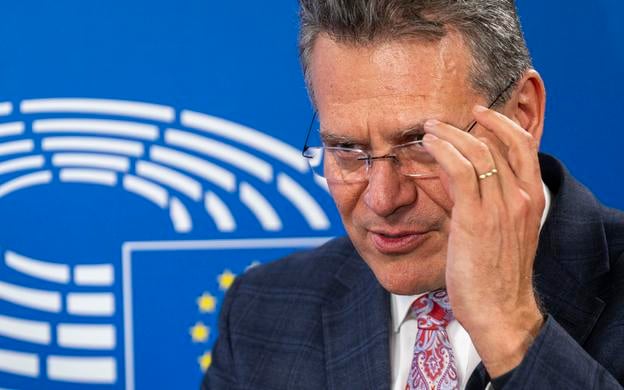 Slovak European Commissioner for Trade and Economic Security Maroš Šefčovič (source: TASR - Jakub Kotian)
Slovak European Commissioner for Trade and Economic Security Maroš Šefčovič (source: TASR - Jakub Kotian)
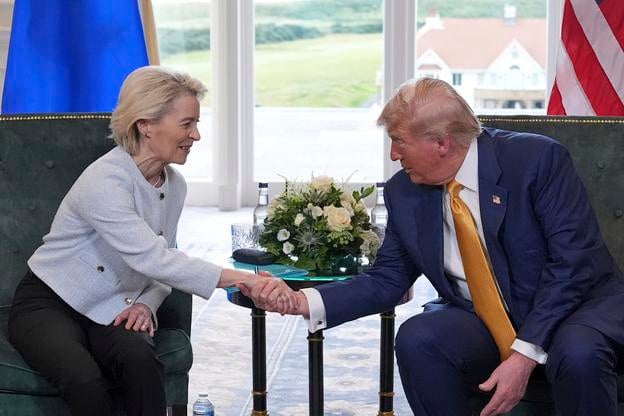 President Donald Trump shakes hands with European Commission President Ursula von der Leyen as they meet at the Trump Turnberry golf course in Turnberry, Scotland, on 27 July 2025. (source: TASR/AP)
President Donald Trump shakes hands with European Commission President Ursula von der Leyen as they meet at the Trump Turnberry golf course in Turnberry, Scotland, on 27 July 2025. (source: TASR/AP)
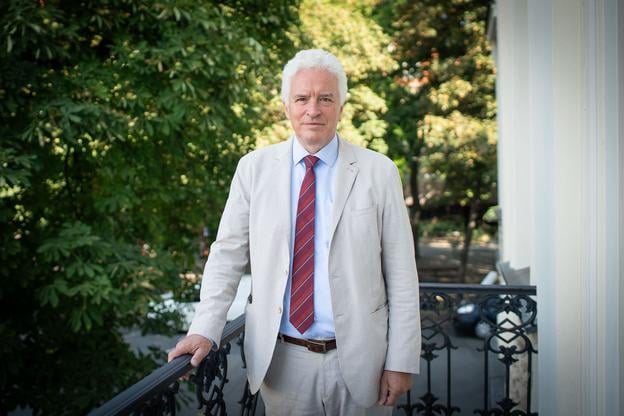 German Ambassador to Slovakia, Thomas Kurz (source: Jozef Jakubčo)
German Ambassador to Slovakia, Thomas Kurz (source: Jozef Jakubčo)
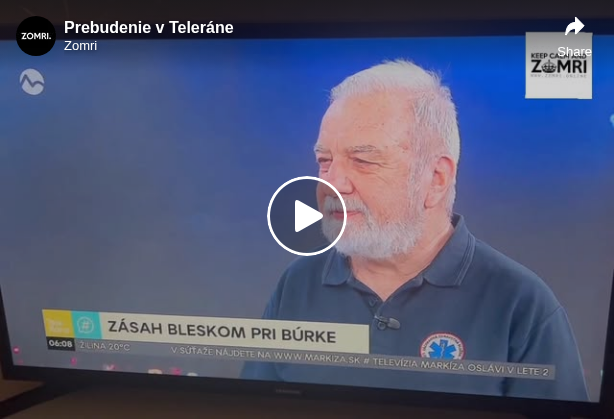
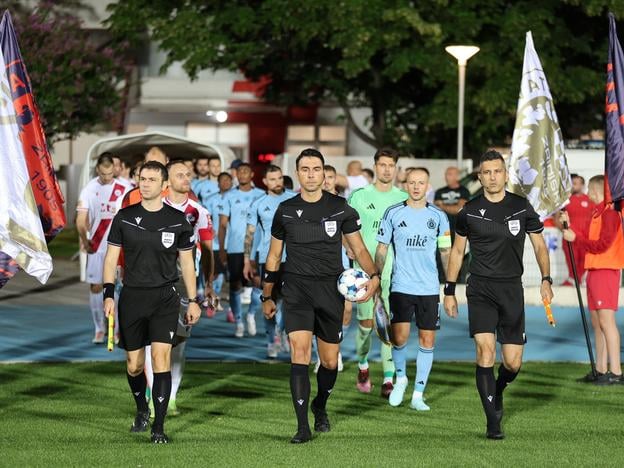 Players of Slovan Bratislava (in blue) and Zrinjski Mostar walk onto the pitch ahead of the second-leg UEFA Champions League second qualifying round match in Mostar on Tuesday, 29 July 2025. Slovan drew 2-2 away in Mostar after a 4-0 home win, securing progression and at least a spot in the group stage of the Europa Conference League. Slovan Bratislava advanced to the 2025/2026 Champions League third qualifying round, where they will face Kazakhstan’s Kairat Almaty. (source: TASR)
Players of Slovan Bratislava (in blue) and Zrinjski Mostar walk onto the pitch ahead of the second-leg UEFA Champions League second qualifying round match in Mostar on Tuesday, 29 July 2025. Slovan drew 2-2 away in Mostar after a 4-0 home win, securing progression and at least a spot in the group stage of the Europa Conference League. Slovan Bratislava advanced to the 2025/2026 Champions League third qualifying round, where they will face Kazakhstan’s Kairat Almaty. (source: TASR)